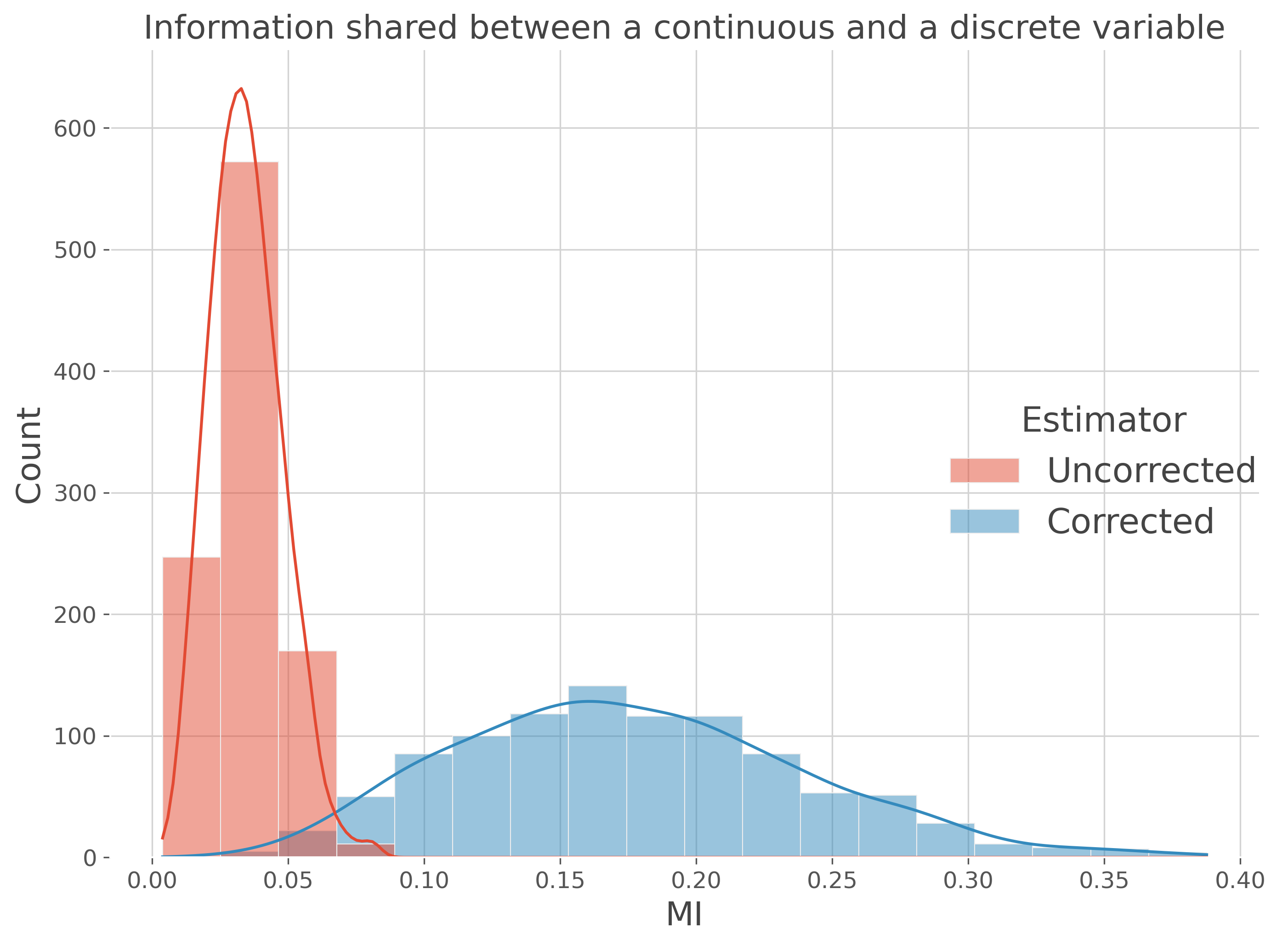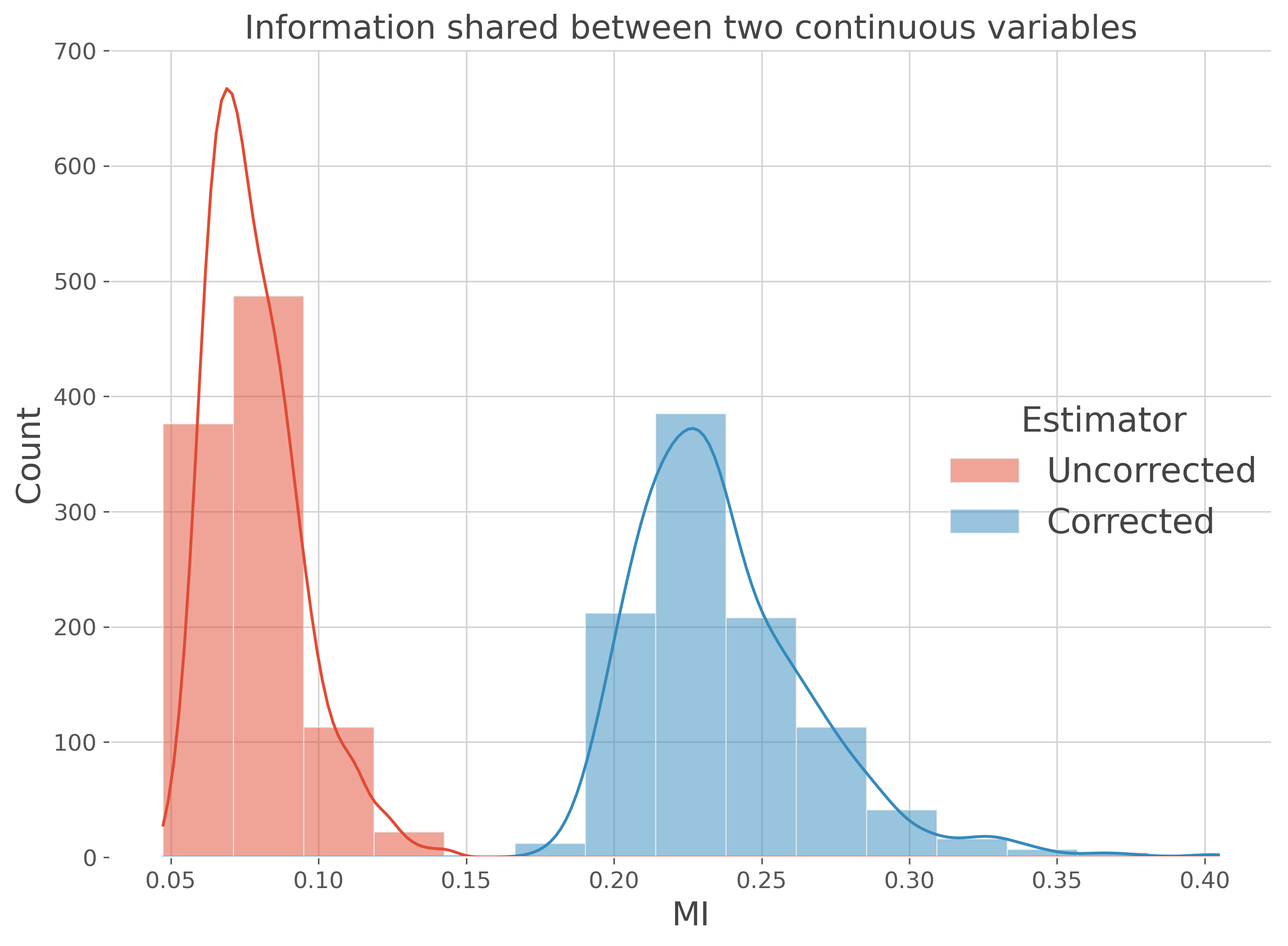Note
Go to the end to download the full example code.
Trial-resampling: correcting for unbalanced designs#
This example illustrates how to correct information estimation in case of unbalanced designs (i.e. when the number of epochs or trials is very different between conditions).
The technique of trial-resampling consist in randomly taking an equal number of trials per condition, estimating the effect size and then repeating this procedure for a more reliable estimation.
import numpy as np
import pandas as pd
from frites.estimator import GCMIEstimator, ResamplingEstimator, DcorrEstimator
from frites import set_mpl_style
import seaborn as sns
import matplotlib.pyplot as plt
set_mpl_style()
Data creation#
This first section creates the data using random points drawn from gaussian distributions
n_variables = 1000 # number of random variables
n_epochs = 500 # total number of epochs
prop = 5 # proportion (in percent) of epochs in the first condition
# proportion of trials
n_prop = int(np.round(prop * n_epochs / 100))
# create continuous variables
x_1 = np.random.normal(loc=1., size=(n_variables, 1, n_prop))
x_2 = np.random.normal(loc=2., size=(n_variables, 1, n_epochs - n_prop))
x = np.concatenate((x_1, x_2), axis=-1)
y_c = np.r_[np.random.normal(size=(n_prop,)),
np.random.normal(size=(n_epochs - n_prop,))]
# create discret variable
y_d = np.array([0] * n_prop + [1] * (n_epochs - n_prop))
print(f"Smaller dataset : {x_1.shape}")
print(f"Larger dataset : {x_2.shape}")
Smaller dataset : (1000, 1, 25)
Larger dataset : (1000, 1, 475)

